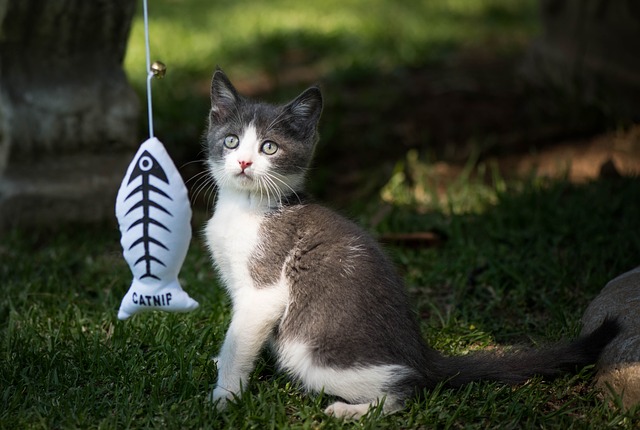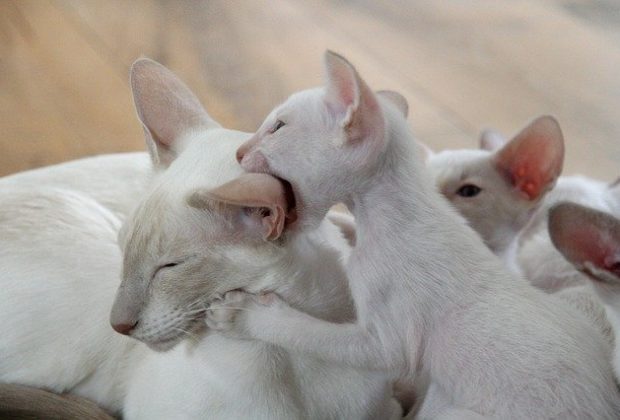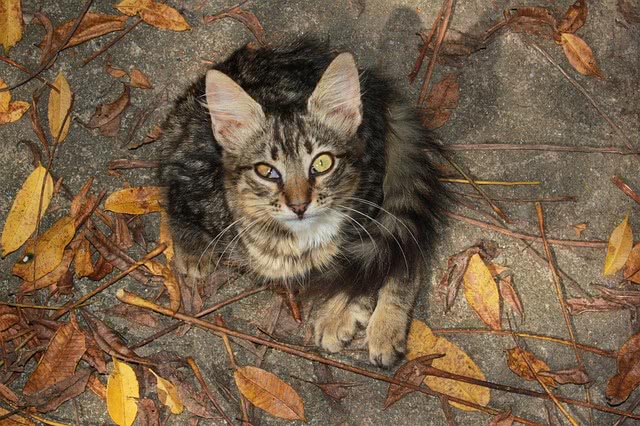Our kittens are adorable, and watching them play is always a delight. However, like our other fur babies, they can become overly excited at play, which could cause them to bite and scratch. While it seems cute and fascinating to watch, it can become a completely different story as they grow bigger. They become swifter, more agile, and their bites and scratches naturally become more painful.
So, why do cats bite? What can you do to stop this behavior if you have a biting cat? We’ll discuss how to get a kitten to stop biting and more in this article.
Table of Contents
Why Do Felines Bite and Scratch?
Biting and scratching are two of the many ways felines test boundaries, play, and socialize with their siblings. Sometimes, however, biting and scratching could be an indicator of an underlying problem. These problems may include fright, pain, or anger.
You want to know precisely why your kitten could be scratching and biting, especially if it’s a behavior someone else has complained about. To help you understand why, do the following when your kitten bites or scratches others.
- Observe the interaction between your pet and the person. This is especially important if the cat’s playmate is a young child. Many young children are not yet able to understand how their rough plays can trigger a negative response from even the calmest pet.
- Check your cat and try to touch him gently in certain areas. If he seems extra sensitive to touch, then he is likely hurting and a vet’s visit would be needed.
- Teach others, especially children, to avoid touching the cat’s face, stomach, and paws. While some felines have no problem being touched in these areas, most are not comfortable with it.

What Can I Do When My Kitten Bites During Play?
If your kitten bites with no serious cause, you must do something about it. Biting and scratching are behaviors you don’t want to continue, no matter your kitten’s age.
If you let it go on at the kitten stage, it can continue well into adulthood, and as you probably already know, their bites and scratches become more painful as they grow older. Below are some things you can do if your kitten bites or scratches you and others during play.
End Play Sessions
You should end play sessions immediately if your cat bites during play. To pass a stronger message across, scream in pain even if exaggerated. Soon enough, he will understand that you do not enjoy the bites and will learn to avoid biting you or anyone else during play. During the learning process, reinforce his good behavior by praising him with a treat or a toy when he acts appropriately.
Offer Him Toys
Our felines enjoy playing, and when they’re not playing with their humans, toys are usually their next alternative. When your kitten starts to bite during play, you can redirect its teeth from your flesh to a toy. Provide him with as many of these toys as possible but ensure they’re big enough not to choke on and gentle enough to prevent him from damaging his teeth on it at play.

Picking the Right Toys
You want to get toys that are fun to play with and truly serve their purpose for your kitten. They should be soft enough and make playtimes interactive and as enjoyable as possible. A great example of this type of toy is the fishing pole toy design. This is not only fun and stimulating for your cat but also helps to place a safe distance between your cat’s teeth and your hands.
Another interactive and fun toy you can try is the laser-beam type. Cats love these toys and they encourage chasing and pouncing. They also teach your cat that your hands or your feet are not toys or playthings.
Toy size: with smaller toys, your cat could still reach your fingers. If you have to use a smaller toy, make sure they are large enough to prevent swallowing and also throw them so your feline can chase.
Add a Playmate
Having another feline in your home, especially if you’re prepared to take on the extra task, can be an effective way to curb your feline’s biting habits. With another kitten in the home, he will be less likely to play rough or injure you with his bites and scratches. Again, ensure that you can comfortably care for another cat. If you can’t, you can try the other suggestions discussed here.
Put Him on “Time Out”
Even our pets can be put on “time out” if needed. Place your cat in a quiet room with the door shut. If your cat’s biting is as a result of overstimulation, placing him on timeout would give him ample opportunity for a gradual recovery. If after the timeout period elapses (15 to 20 minutes is recommended) and you meet your cat already asleep, let him be for a while. On the other hand, if he is awake, lovingly pet him as he simply could require some attention from you.
Be Patient
Your cat may not adjust his behavior in one day, one week, or even a month; at least, this is true with most cats. But you still want to be persistent and consistent with the training and changes as these will yield results in the end. Try to remain patient, loving, and caring while at it.
What You Shouldn’t Do If Your Cat Bites
You want to stop the behavior as soon as possible, but you also have to understand that going about it wrongly could have some adverse effects on your cat and your relationship with him.
You should not do the following when trying to stop your cat from biting or scratching.
Don’t hit, push, yell or sprinkle water on your cat.
You should avoid hitting, pushing roughly, or sprinkling water on your kitten when he bites. Yelling is also something you shouldn’t do. While these actions may help to stop the behavior briefly, they do little to assist in the long run and cause him to become scared of you. These actions could also cause them to become more aggressive than before, meaning that they could bite or scratch harder than they did previously.
Make the learning period fun while also sticking to the goal. Your cat will soon learn that the behavior is unacceptable and will channel his biting to other more appropriate outlets.
Conclusion
In one way or another, our kittens have likely been encouraged or allowed certain behaviors, including biting and scratching. While these behaviors seem cute when they are little, they become entirely different as they grow and their claws and teeth become bigger. Bites become harder, scratches are sharper, and of course, more painful.
Allowing this behavior tells your cat that your hands and feet are also just as good as their toys and that they are free to bite or scratch them any time they want. While very much possible, stopping this behavior is a lot harder later.
If your cat grew up biting and scratching you and others, you could stop it with some methods discussed in this article. Patiently continue the lessons while also ensuring that others in the home and even visitors understand that they are not allowed to let the cat nibble on their fingers or scratch them. You want the message to remain consistent to avoid sending mixed signals to your cat.
Finally, you want to ensure that your kitten's biting and scratching aren't connected to an undiagnosed underlying physical problem. Thoroughly examine him or have a vet or an expert pet handler check him and offer a solution if required. If, after examination, everything appears fine, then it is likely just a behavior that has been allowed for too long. Start the lessons, and with time, your cat will adjust accordingly.
Have you ever had to deal with a biting or scratching cat? How did you get a kitten to stop biting? Share in the comment section below. On the other hand, if you currently have to deal with the behavior, let me know how the tips above worked for you.
About the Author
Kirsten Heggarty
Kirsten created The Pet Handbook with the aim of sharing her knowledge about pets, pet food, healthy habits, and more. All of her advice is based on years of her own experience with her pets, and feedback that she has received from grateful readers about her tips. If you want to know more please read the About Me page.









